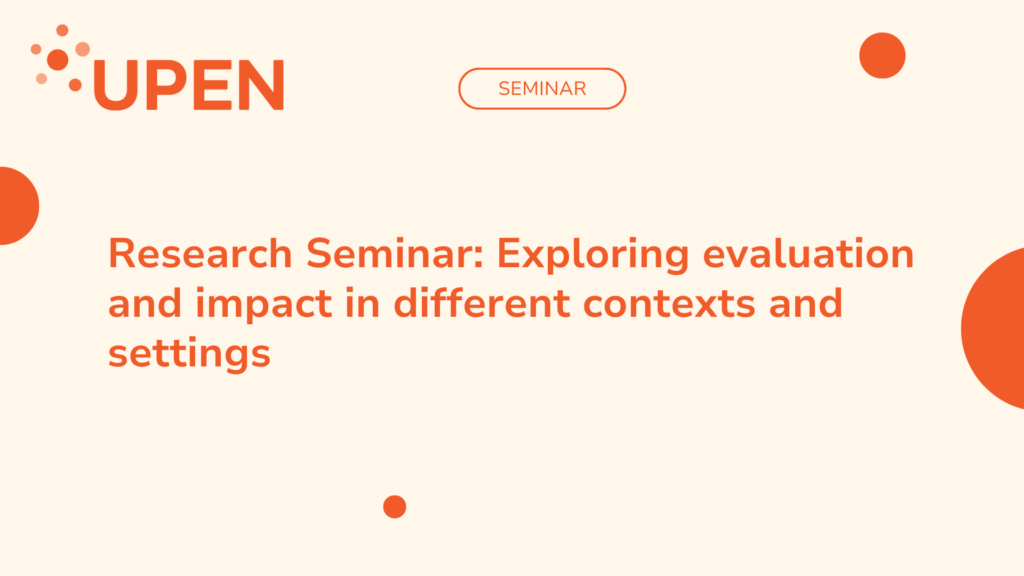UPEN 2025 Annual Conference
This years conference is hosted by the University of Surrey, between the 10th and 11th of June 2025.

Latest News: Registration open and Keynote announced
We are pleased to announce that our keynote speaker for this year’s UPEN Conference will be Professor Dame Angela McLean! See below further detail.
Registration for the UPEN Conference will close on Friday 30th May at 11.59pm.
Registration for the UPEN Members Meeting will close on Friday 30th May at 11.59pm.
Register here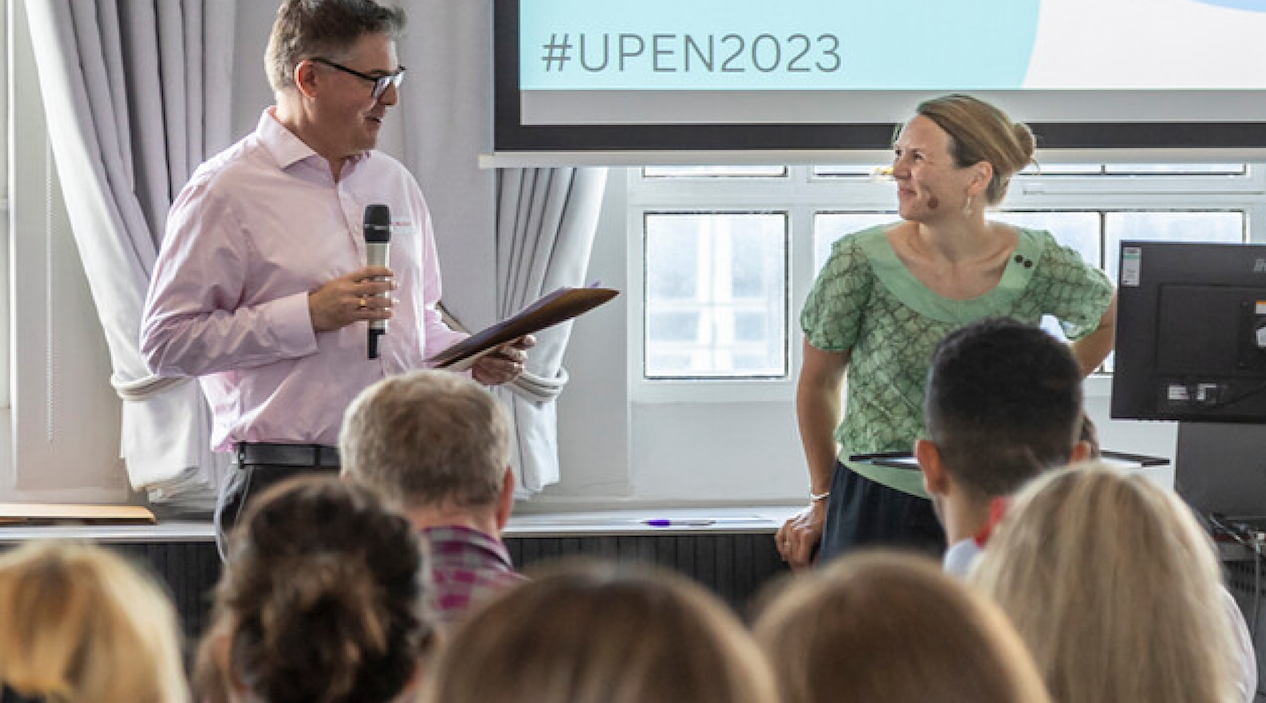
Evaluation and Impact in Academic-Policy Engagement
How do we evaluate the impact of academic evidence on public policy? What methods can we use to gather impact? How do we measure the impact of knowledge mobilisation and knowledge brokers within the public policy making process? This conference will explore these questions from a practice-perspective, and showcase work currently engaging in this discourse in the sector.

Members Meeting: Tuesday 10th
Our annual members meeting will be open to all UPEN university members. This day will provide updates on the UPEN network and its activities, and its strategic direction. Registration is now open.
Register here
Main Conference: Wednesday 11th
Our theme for this year is ‘Evaluation and impact in academic-policy engagement’. We will be hearing from a keynote speaker, and our workshops will be run by our membership. Please register on eventbrite using this link.
Register hereKeynote announcement
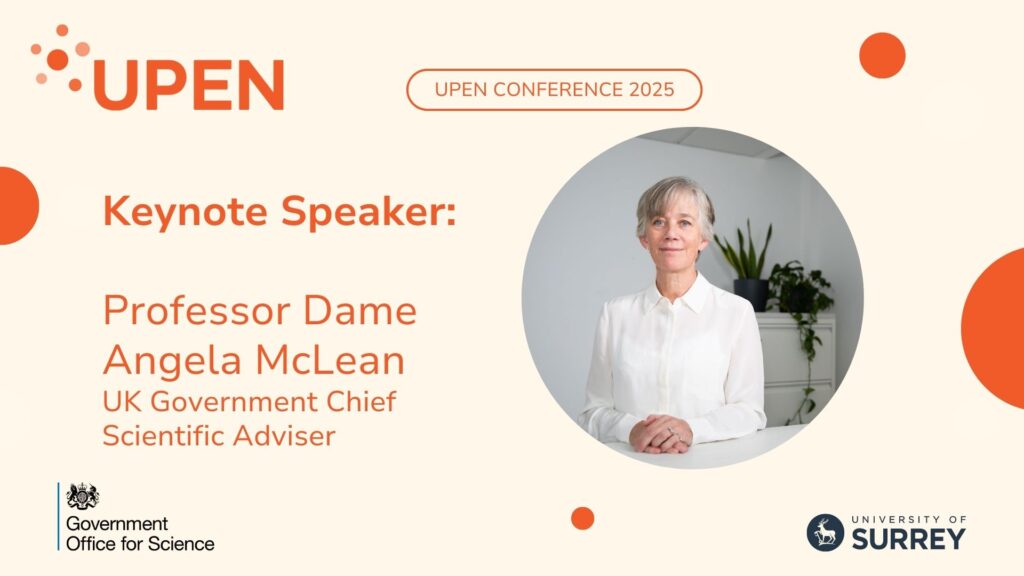
We are pleased to announce that our keynote speaker for this year’s UPEN Conference will be Professor Dame Angela McLean! Prof Dame McLean is the Government Chief Scientific Adviser for the UK and Head of the Government Science and Engineering Profession. She is also a Fellow of the Royal Society and received her damehood in the 2018 Queen’s Birthday Honours List. Angela was also the first woman to be appointed as Government Chief Scientific Adviser.
We are excited to welcome her to Surrey in June and hear her insights on evaluation and impact as relevant to academic-policy engagement.
Panel event
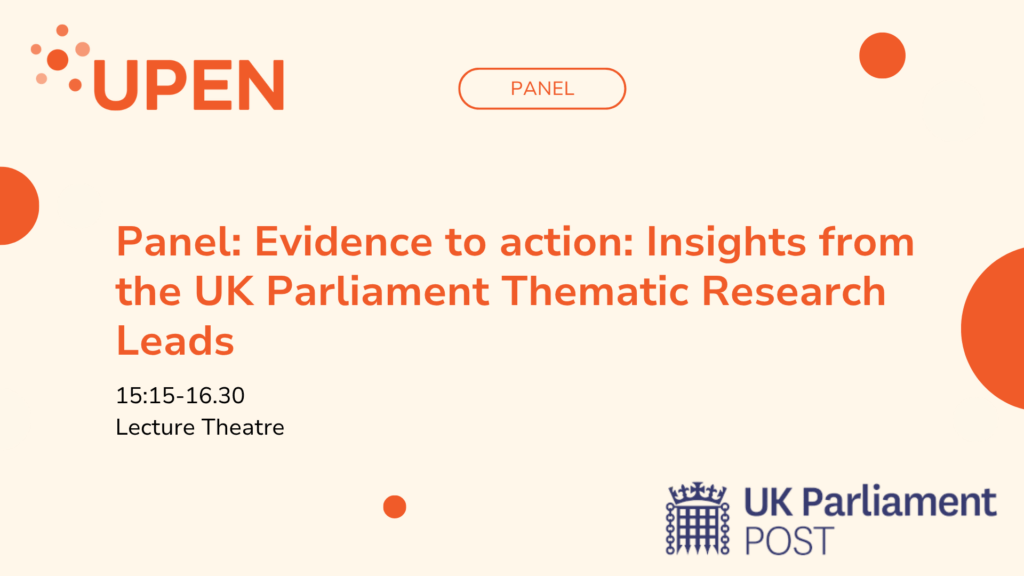
Evidence to action: Insights from the UK Parliament Thematic Research Leads
Join the UK Parliament Thematic Research Leads (TRLs) for a dynamic and thought-provoking panel exploring how academic research helps inform policy makers and shape the scrutiny of government. The panel will reflect on actionable insights for the audience based on their unique experiences and perspectives as TRLs, including:
- navigating a diversity of cultures and research needs across Parliament.
- opportunities and challenges for evidencing and evaluating impact in Parliament
- cross disciplinary thematic engagement
This will be an interactive session with the audience ‘in conversation’ with the TRLs.
The TRLs are the UK Parliament’s equivalent of chief scientific advisers, they work at the intersection of evidence and influence to foster thematic demand for research and facilitate the delivery of knowledge exchange across UK Parliament.
Panellists: Leslie-Anne Duvic-Paoli | Ruth Lamont | Helen McCabe | Jane Parry | Louise Reardon | Varuna de Silva | David Strain
Chair: Sarah Foxen
Workshops and Research Seminars
After lunch, there will be an opportunity to join a workshop or research seminar, which will take place parallel to each other. You’ll only be able to join one workshop OR research seminar, so please take some time to consider which one you’d like to register for. Summaries of each workshop will be written afterwards and published.

This workshop will draw on the speakers’ experience of participating in and evaluating knowledge exchange initiatives, including the Areas of Research Interest (ARI), the Capabilities in Academic Policy Engagement (CAPE) project, and the beginnings of a – first of its kind – cost-benefit analysis of academic-policy knowledge exchange. The workshop will draw out lessons for those wanting to support activity, and those funding effective and responsible knowledge exchange, through discussion to agree principles of good practice for KE evaluation.
The workshop will focus on the outputs of a UCL policy fellowship on Research Cities, which seeks to develop a maturity framework for place based academic collaborations, as well as share some examples of outcomes so far from ARIs development with local authorities, combined authorities, and parliaments. Participants will be able to engage with, critique and share feedback on the evolving space and learn from its developments.

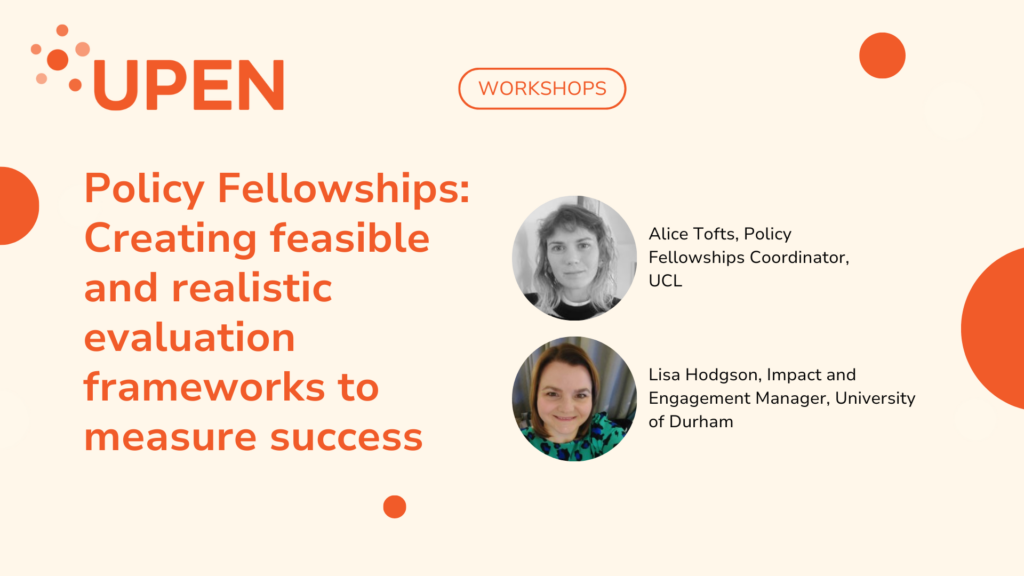
This workshop aims to promote collaborative discussions on how to evaluate Academic-Policy Fellowships, focusing on understanding what constitutes a successful fellowship for all involved parties. The session will explore both policy-to-research and research-to-policy fellowships. Fellowships comprise secondments or placements when fellows are embedded within host organisations. Drawing on existing evaluations by organisations like UKRI, CSAP, and CAPE, participants will reflect on key success factors and learn to adapt evaluation strategies to their own organisational context.
As part of the CAPE funding, the University of Nottingham has developed a new way for researchers to think about policy impact and build impact plans into their work. By gamifying the process of policy campaign planning we believe we have created a more accessible method to think through engaging with policy makers in the UK and further afield. The workshop will be a short taster of how the cards could be used to develop policy campaigns.
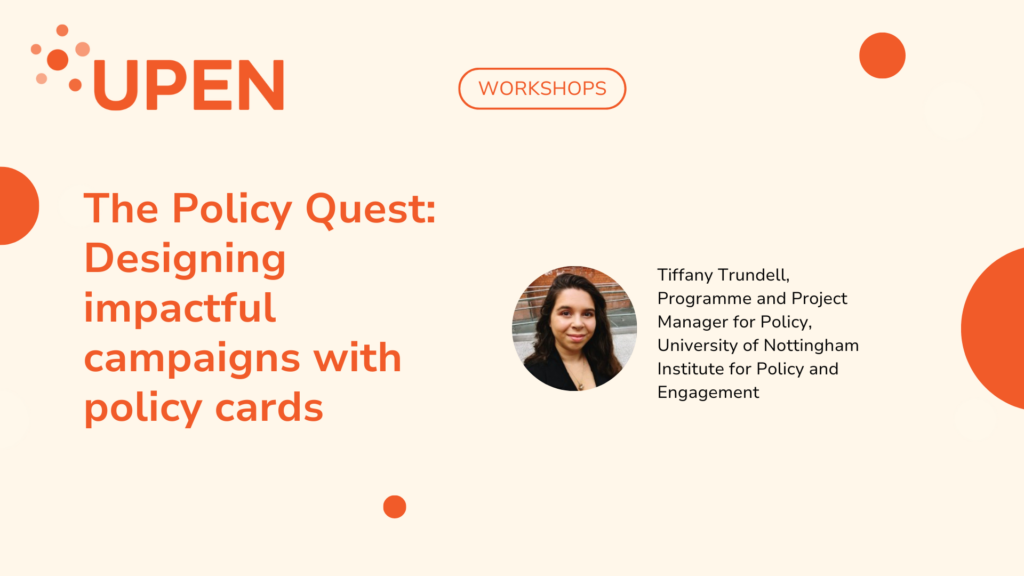
Research Seminars
Six pieces of research have been selected to provide space for discussion and exploration of a particular issue, topic, question or finding. Two research seminars will take place, themed into:
- Diversifying and disrupting assumptions around evaluation and impact;
- Exploring evaluation and impact in different contexts and settings
In one seminar, you will have an opportunity to hear from three researchers/research teams, who will speak present for no longer than 15 minutes on their topic. Then, you will self-arrange into groups to have an in-depth discussion on the this, having received any relevant papers, briefings or reports in advance. You’ll then have an opportunity to do this for each piece of research.
See below titles.
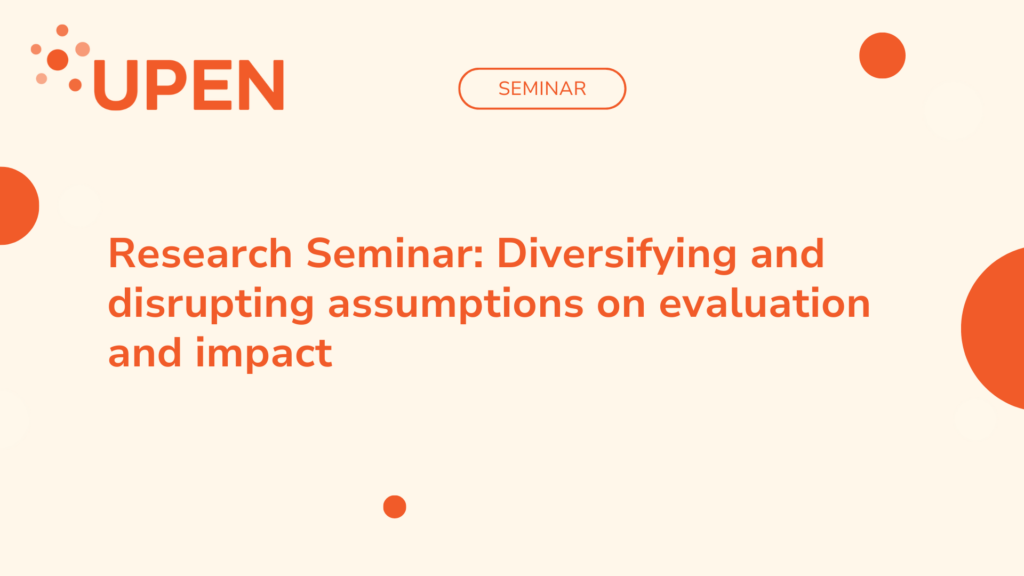
Dr Sarah Weakley and Kimberley Somerside, Impact of Policy Schools as an Academic-Policy Engagement Mechanism: Lessons from Pilot Year
TBC
TBC
TBC
Taghreed El Hajj & Kerry Millington, Evaluation in International Global Health research-policy spaces
TBC
